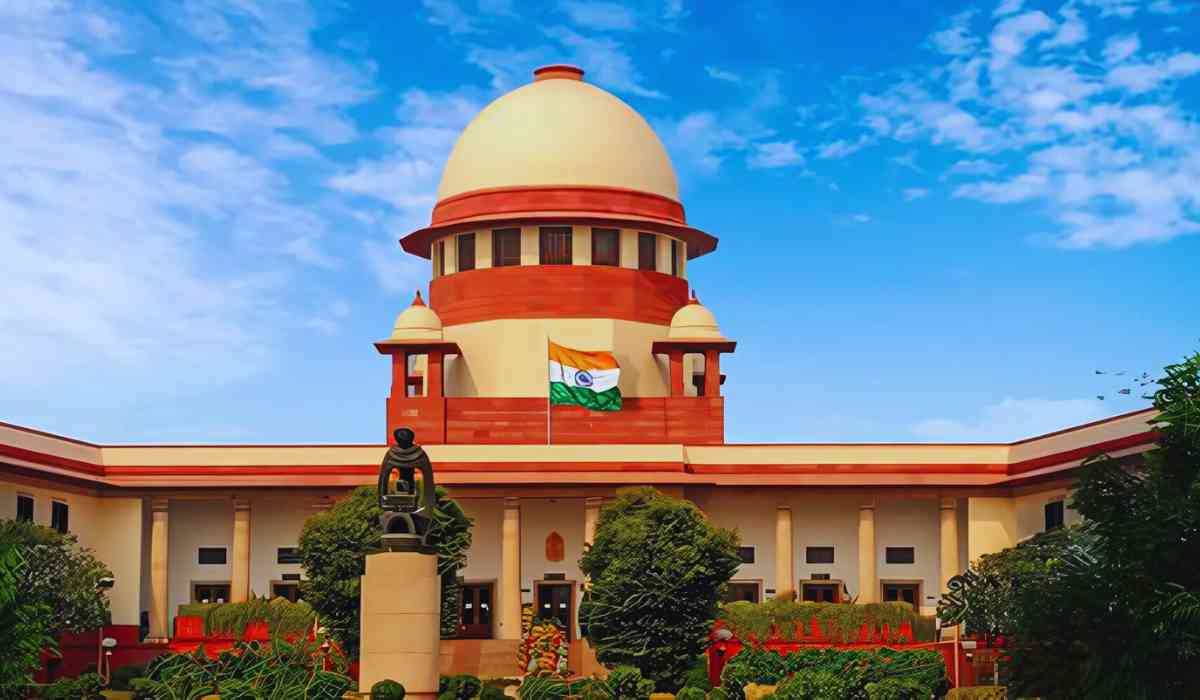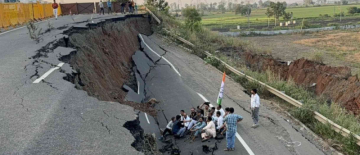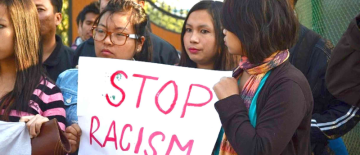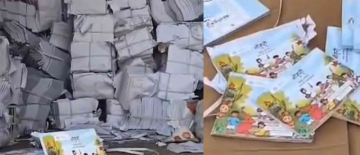During court discussions on shelter conditions for the homeless of Delhi Justice Gavai warned that we were evolving "parasites" as a new demographic nationwide.
On February 12 the Indian Supreme Court criticized political parties and administrative bodies because freebie policies discouraged workers from employment while causing labour shortages.
During a hearing about shelter homes for the homeless a bench comprised of Justice B R Gavai and A G Masih issued their comments at the Supreme Court of India. The counsel presented their point of view to the court that these policies exclusively serve the rich population.
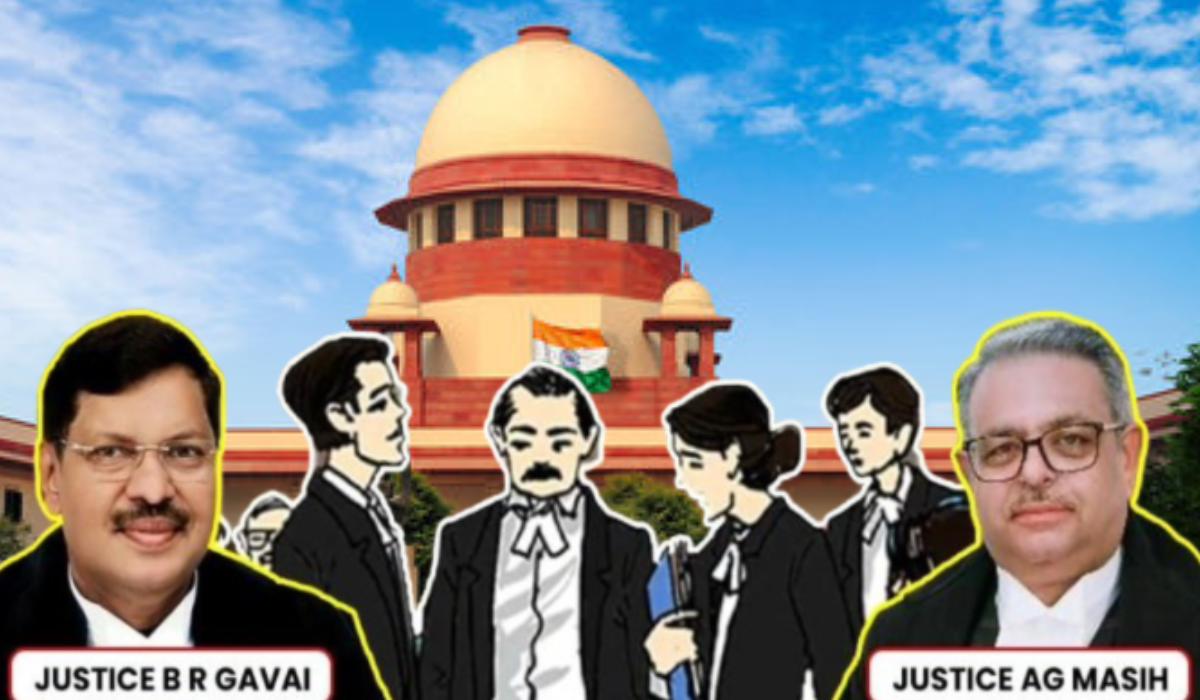
The judges firmly responded to this statement while issuing a stern warning that prevented the counsel from turning the judicial building into “a political platform.”
Remarks by the counsel
During his presentation before the court he stated that policies and compassion in this country serve only the rich population.
The homeless population along with poor and disadvantaged people make up the primary victims of this circumstance. The court proceedings failed to explore the fundamental reason responsible for homelessness. The country gives this problem a lower priority than all else in its agenda. According to the counsel's statement compassion exists only in the lives of wealthy citizens but not among the poor.
Objection raised by Justice Gavai
Justice Gavai intensely objected to this statement because he believed the courtroom existed solely for legal arguments.
This court must not receive the kind of political speech delivered at Ram Lila maidan. The judicial process demands arguments only within the defined court discussion. Your support for others should remain limited to that specific expression. Don’t make unnecessary allegations. The bench rejects political declarations from speakers in its chamber. Justice Gavai clearly stated that the court facility would not become an open political stage.
Court criticises the ‘freebies’
During the court debate about homeless shelters in Delhi Justice Gavai diagnosed the situation by stating we generate “a class of parasites".
Instead of encouraging these individuals to join the national development by contributing to society we create parasites according to the court's evaluation.
These elections see members of the government grant freebies called “Ladli Behen and some other scheme” that prevents people from wanting to work. Many people receive both free food rations and monetary benefits without requiring work thus they ask, "why should I work?" Justice Gavai added.
The judge told Senior Advocate Prashant Bhushan that the court acknowledges his support yet the better method to include them in national development would be to fully integrate them into mainstream society. The judge made it known to me about the current situation that some states provide free ration distributions which discourages people from seeking employment.
Freebies In Politics
The government released those strong judicial statements shortly after the Delhi assembly vote finished as BJP together with AAP disclosed numerous expensive commitments, they wanted to fulfil upon ruling.
AAP promised several benefits to the public during campaign season like the Mahila Samman Yojana which provided Rs 2,100 monthly support to each woman and free water bills combined with male student bus services and student metro fares at half price.
The BJP declared financial support of Rs 2,500 to women as well as a free Holi and Diwali gas cylinder among multiple items.
Monthly financial assistance proposals made by the BJP led to their electoral victory in state elections that took place in Madhya Pradesh, Haryana, and Maharashtra.
What is the Urban Poverty Alleviation Mission?
The New Mission stands for Urban Poverty Alleviation which serves the country's urban neighbourhoods.
The Ministry of Housing and Urban Affairs implemented The New Mission as a program to help decrease urban poverty in local Indian communities. Financial support combined with credit system benefits for vulnerable groups along with socio protection form the central focus of this program. Through this program the mission seeks to establish skilled wage employment positions and boost self-employment possibilities.
The mission launched its pilot phase under October 2024 which currently focuses on 25 cities comprising various communities from migrant zones and industrial sites. The mission concentrates its efforts on safeguarding six groups at risk: transport workers and construction professionals, waste disposal personnel, caregivers, homemakers, and individuals who earn money through digital or other casual activities.
The mission plans to help 2.5 crore households from urban poverty while enhancing their socioeconomic status to eliminate poverty.
The advocate Bhushan defended Kumar during the hearing by explaining that government funding for urban shelter programs has experienced substantial cuts during recent years so states presently state they have insufficient funds to operate proper shelters.
“He presented disturbing facts about winter deaths which showed that approximately 750 homeless people lost their lives to extreme cold temperatures. Availing shelters across India revealed serious gaps according to Bhushan in his testimony because the central government stated 1,995 facilities served only 11,600 beds to homeless people. The estimated three lakh homeless residents in Delhi need approximately 5900 shelter beds as per DUSIB (Delhi Urban Shelter Improvement Board) data according to his argument”.
State-wise monitoring committees received attention from the court during this hearing due to complaints about their failure to appropriately execute previous directives. The court received information about inadequate functioning of these committees which led the bench to schedule a review at the subsequent hearing. The court suspended the proceedings by six weeks until the Centre provided verification data and implementation details for their new Urban Poverty Alleviation Mission.
Balancing Welfare and Fiscal Responsibility: The Debate on Freebies in Politics
The Debate on Freebies in Politics examines how to achieve proper alignment between welfare needs and financial constraints.
The Supreme Court delivered recent remarks about freebie distribution in politics to trigger essential dialogue regarding welfare policy trade-offs with economic sustainability. Free ration programs and other handouts faced criticism from the court because such programs might develop a dependent welfare culture which may discourage individuals from working. The economic view matches the court's observations about subsidies because they suggest excessive spending reduces public funds that drive economic growth over time.
The problem requires analysis through an extensive socioeconomic perspective. The implementation of free ration programs along with other benefits creates an essential protective system for numerous underprivileged citizens. These provisions serve as essential lifelines because most people require them for survival rather than choice because of their financial struggles or unemployment or because living expenses are increasing rapidly. Such assistance does not lead to worklessness because it addresses the fundamental problems from which individuals cannot escape including insufficient job availability and low wages along with rising costs.
World governments create welfare programs that protect disadvantaged citizens, yet their effectiveness directly results from how well these policies are constructed and implemented. Social assistance programs bring effective results when well-targeted as they enhance community development while providing stable nutrition assistance. Such welfare schemes lose their sustainability when they are improperly managed through political manipulation which produces financial strain on public budgets.
A proper approach needs incorporation between social welfare program delivery for legitimate needs along with economic development and new job formation. Government leaders must develop safety net programs which deliver quick help while preventing unemployment reduction and economic instability. People should move beyond viewing development as limited to freebies versus no freebies because they should concentrate on creating sustainable development that provides education alongside job opportunities while embracing economic inclusion for all.
The Supreme Court brings forward real issues about earnings transfer schemes, but critical national discourse needs to address the essential survival needs of millions of people who depend on them. The proper approach needs to address economic security while being sensitive to social equality needs.
With inputs from agencies
Image Source: Multiple agencies
*The views expressed are personal to the author and do not reflect the platform's opinion of the same.
© Copyright 2024. All Rights Reserved Powered by Vygr Media.
About the author
Manish Kumar pursued a master’s degree in journalism and mass communication from Amity University, Haryana. He is an enthusiastic and dedicated writer, who has worked with several ministries of the Government of India and contributed his voice to major campaigns and programmes. Being devoted to practising significant journalism, Manish does his best to become a voice of change in society. Not only does he tell but also persuade, which is indicative of his strong conviction in the perspective of media.

